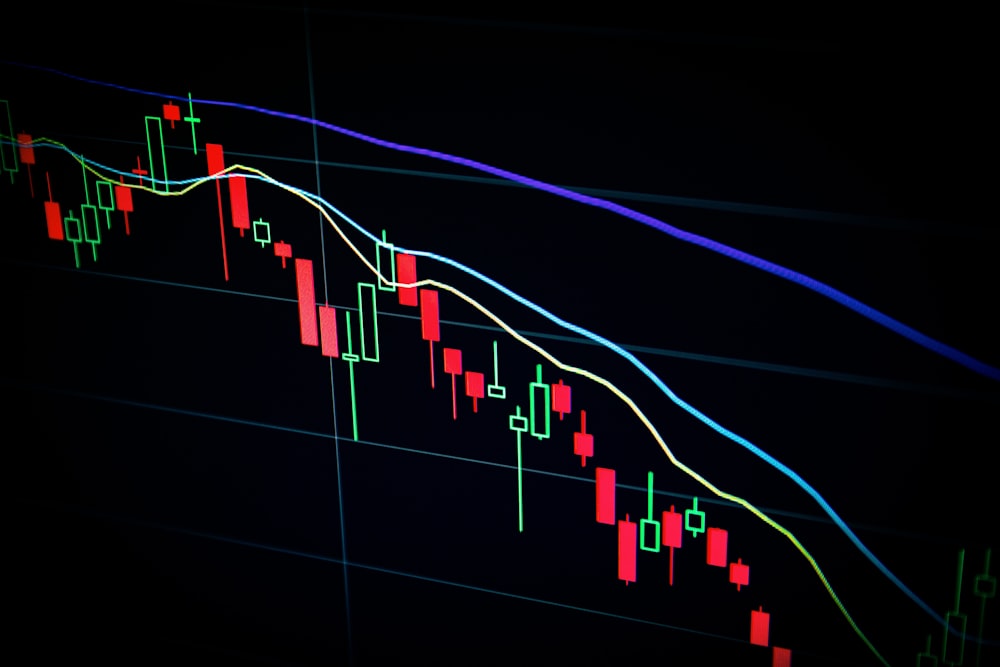📚 Table of Contents
- ✅ Understanding Carbon-Transition Investing
- ✅ Key Skills Employers Seek in Carbon-Transition Experts
- ✅ Technical Expertise in ESG and Sustainable Finance
- ✅ Industry Experience and Sector-Specific Knowledge
- ✅ Analytical Abilities and Risk Assessment
- ✅ Communication and Leadership in Sustainability
- ✅ Certifications and Credentials That Matter
- ✅ Future Trends in Carbon-Transition Hiring
- ✅ Conclusion
Understanding Carbon-Transition Investing
As the world shifts toward a low-carbon economy, businesses and investors are increasingly prioritizing sustainability. But what exactly makes a professional stand out in the field of carbon-transition investing? Employers are on the lookout for experts who not only understand the financial implications of decarbonization but also possess the strategic vision to navigate this complex landscape. From regulatory frameworks to emerging green technologies, the demand for skilled professionals in this niche is skyrocketing.
Key Skills Employers Seek in Carbon-Transition Experts
Employers evaluating candidates for roles in carbon-transition investing prioritize a mix of technical, analytical, and interpersonal skills. A deep understanding of Environmental, Social, and Governance (ESG) metrics is non-negotiable, as these frameworks guide sustainable investment decisions. Additionally, professionals must demonstrate proficiency in financial modeling, risk assessment, and scenario analysis to evaluate the long-term viability of low-carbon projects. Beyond technical prowess, soft skills like stakeholder engagement and persuasive communication are critical, as these roles often involve influencing corporate strategies and investor decisions.
Technical Expertise in ESG and Sustainable Finance
Mastery of ESG frameworks such as SASB, TCFD, and GRI is a fundamental requirement for carbon-transition investing experts. Employers look for candidates who can interpret sustainability reports, assess carbon footprints, and integrate climate-related risks into financial models. For example, an investment analyst might evaluate a renewable energy project by analyzing its alignment with the Paris Agreement goals while ensuring financial returns. Familiarity with carbon pricing mechanisms, green bonds, and impact measurement tools further enhances a candidate’s marketability.
Industry Experience and Sector-Specific Knowledge
Carbon-transition investing spans multiple industries, from energy and transportation to manufacturing and agriculture. Employers value professionals with hands-on experience in sectors undergoing significant decarbonization. For instance, a candidate with a background in renewable energy development may have insights into the challenges of scaling solar or wind projects. Similarly, expertise in heavy industries like steel or cement—where carbon capture and storage (CCS) technologies are critical—can set a candidate apart. Real-world case studies, such as transitioning a fossil-fuel-dependent portfolio to green assets, demonstrate practical competence.
Analytical Abilities and Risk Assessment
Carbon-transition investing is fraught with uncertainties, from regulatory changes to technological disruptions. Employers seek professionals who can conduct rigorous risk assessments and stress-test investment strategies under various climate scenarios. For example, an analyst might model the financial impact of a carbon tax on a company’s valuation or assess the stranded asset risks in fossil fuel investments. Proficiency in data analytics tools like Python or R, combined with an understanding of climate science, enables experts to make data-driven decisions that align with sustainability goals.
Communication and Leadership in Sustainability
Effective communication is paramount for carbon-transition experts, as they often bridge the gap between technical teams and executive leadership. Employers look for candidates who can articulate complex sustainability concepts to diverse stakeholders, from investors to policymakers. Leadership skills are equally important, as these professionals may spearhead corporate sustainability initiatives or advocate for green policies. For example, a sustainability officer might present a decarbonization roadmap to a board of directors, emphasizing both environmental benefits and financial returns.
Certifications and Credentials That Matter
Professional certifications can significantly enhance a candidate’s credibility in carbon-transition investing. Employers frequently prioritize credentials such as the CFA Institute’s Certificate in ESG Investing, the Global Association of Risk Professionals (GARP) Sustainability and Climate Risk (SCR) certification, or the SASB FSA designation. These programs validate expertise in sustainable finance and climate risk management. Additionally, advanced degrees in environmental economics, sustainable business, or related fields provide a competitive edge, signaling a deep academic foundation in the subject.
Future Trends in Carbon-Transition Hiring
The demand for carbon-transition investing experts is expected to grow exponentially as governments and corporations accelerate their net-zero commitments. Emerging trends include the rise of nature-based solutions, such as reforestation projects, and the integration of artificial intelligence in carbon accounting. Employers will increasingly seek professionals who can navigate these innovations while maintaining financial rigor. Furthermore, regulatory developments like the EU’s Sustainable Finance Disclosure Regulation (SFDR) will shape hiring priorities, emphasizing compliance and transparency in green investments.
Conclusion
The transition to a low-carbon economy is reshaping the financial sector, creating unprecedented opportunities for professionals with the right expertise. Employers are looking for a unique blend of technical knowledge, industry experience, and leadership skills in carbon-transition investing. By staying ahead of trends, obtaining relevant certifications, and demonstrating real-world impact, candidates can position themselves as invaluable assets in this rapidly evolving field.


Leave a Reply